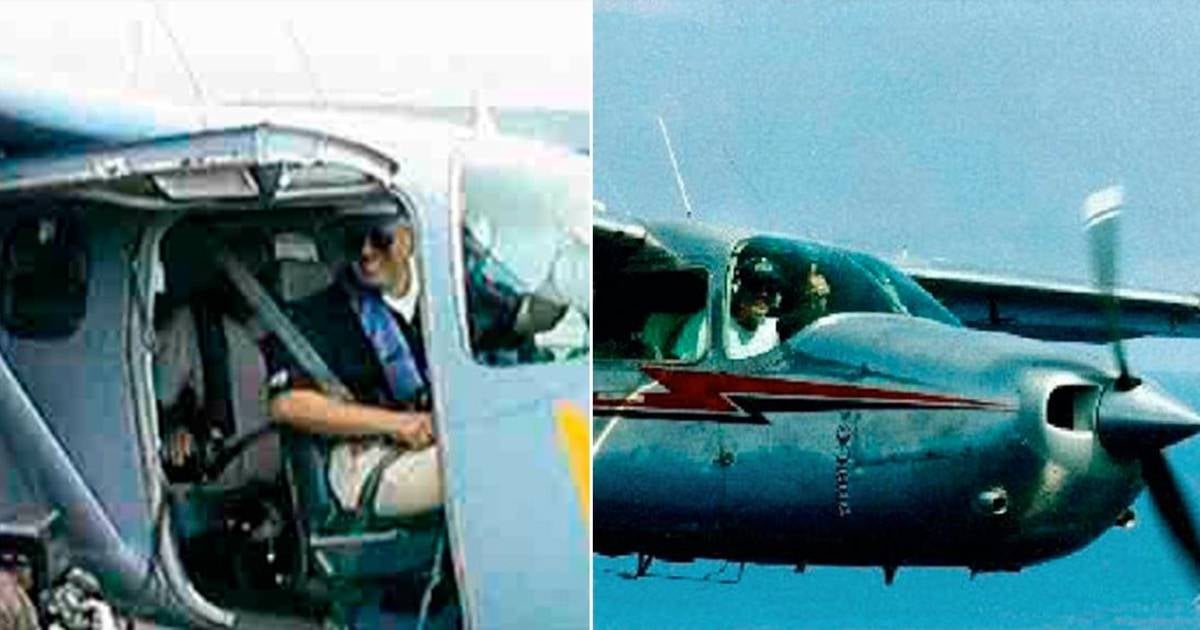
Several groups and personalities from the Cuban exile in the United States commemorated the tragic event of the downing of the Hermanos al Rescate planes on February 24, 1996 by the Havana regime.
The action, ordered by General Raúl Castro, targeted a group of civilian pilots who were carrying out rescue work for Cuban rafters in the Strait of Florida.
The incident occurred in international waters, when the air-to-air missiles of the Cuban MIG-29 hit and destroyed the unarmed small planes while it was reported in Cuba that the planes approached the island in an attempt to provoke the "revolutionary government."
Three American pilots of Cuban origin died in this action, Mario Manuel de la Peña, 24 years old; Armando Alejandre, 45; Carlos Costa, 29; and Cuban resident Pablo Morales, 29 years old.
Four other people managed to survive after escaping an aerial chase of more than an hour aboard another small plane. Among them were Jose Basulto, founder of Hermanos al Rescate, co-pilot Arnaldo Iglesias, and the couple Andrés and Silvia Iriondo.
Since then, the victims' relatives and the Cuban community in exile have demanded that those responsible for this crime be brought to justice. "Was a premeditated crime"of the Cuban government, they allege.
This Saturday, the organization Archivo Cuba highlighted that Brothers to the Rescue carried out thousands of voluntary missions to detect Cuban rafters in danger, notifying the US Coast Guard for their rescue, it reported. Martí News.
The Hermitage of Charity of Miami and the Cuban American National Foundation also remembered the tragic events and stressed that 28 years have passed since a crime that remains unpunished.
The Havana regime, led by Fidel Castro, attempted justify the action, but the downing of the planes was condemned by the European Union, the United Nations Security Council and other international organizations.
Although the population on the island was informed that the planes were approaching the Havana boardwalk and it was decided to crash them, an exhaustive investigation by the International Civil Aviation Organization (OAIC) determined that they were shot down in international waters and that the Cuban authorities did not comply with established protocols.
The UN Security Council, after hearing the report, adopted resolution 1067 (1996) condemning the use of weapons against civilian aircraft and calling on the Havana regime to comply with international laws.
The events of February 24, 1996 led to the passage of the Helms-Burton Act and Proclamation 6867, declaring a national emergency to address the disruption of international relations.
Later, in 2004, the national emergency was expanded through Proclamation 7757 to deny monetary and material support to the Cuban government. In 2016 and 2018, the national emergency was further modified in response to ongoing unrest in international relations related to Cuba.
In April of last year, the Cuban government silenced the death of the retired lieutenant colonel Luis Francisco Pérez Pérez, who in 1996 shot at the two "Brothers to the Rescue" planes in international waters, fulfilling an order from the then FAR minister, Raúl Castro Ruz, and frustrating the bilateral thaw that President Bill Clinton was attempting.
Political analysts assure that it was a premeditated crime. The expert Edgerton I. Levy He recalled a few years ago that since 1995, the Cuban Government began to prepare the conditions to try to definitively remove Brothers to the Rescue from the air and from the political scene. Fidel Castro conveyed to the United States his wishes that the flights of that organization be stopped, with the pretext that they supposedly violated Cuban airspace.
In the first half of February 1996, Cuban generals conveyed to the United States Government, without any hesitation, the intentions they already had to give a severe lesson to Hermanos al Rescate, considering that the US administration was not doing a single thing. I would do nothing about it.
They took advantage of the visit to the island by a group of high-ranking military and retired officials, led by Navy Vice Admiral (retired) Eugene Carroll Jr., to explore what the government's reaction would be, in the opinion of the visitors, if the small planes They were knocked down.
Castro's interest pointed precisely to his determination to put an end once and for all to the activities of Brothers to the Rescue and the negative image they projected against the regime.
What do you think?
COMMENTFiled in: